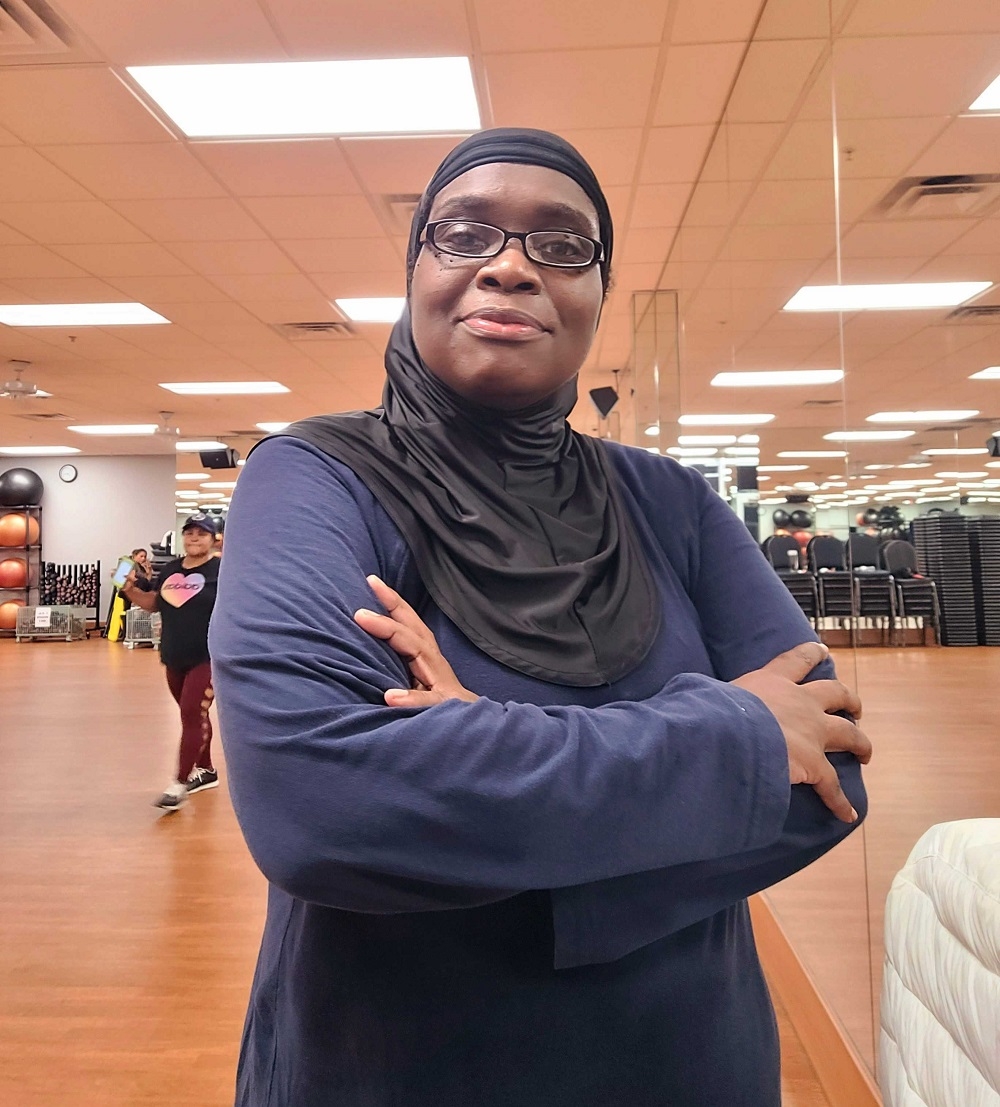The Layla Project: How Various Therapies Helped Me (and Can Help You) in a Healing Journey
Lifestyle
|
Mar 28, 2023
|
10 MIN READ

Editor's note: Our long-time writer, Layla Abdullah-Poulos, is taking on different activities in a year-long journey of self awareness, self empowerment and healing, which she is documenting throughout 2023 in a four-part series at The Haute Take. This, part two, is the spring cycle of Layla’s journey and focuses on therapy. Click here to read part one from the winter cycle. We hope it inspires you to embark on your own healing journey.
Healing can take many forms, whether physical, emotional or spiritual, and each person's journey is unique to their experiences. It may involve seeking therapy or counseling, practicing self-care and self-compassion, exploring new hobbies or interests, or simply taking time to reflect and focus on your inner self. As I’ve explored different things to find what works for me, talk therapy and group therapy (see below) has become important in my healing journey to improve my well-being and find peace. Talking to professionals and non-professionals has been especially helpful in addressing my mental health needs.
Talking with professional therapists and counselors about anything pressing on my mind has helped me develop insight into my struggles, cope better with overwhelming emotions, challenge negative thought patterns, and understand how those thoughts manifest themselves in different aspects of my life. Working through traumatic experiences or any other issues I may struggle with through this kind of therapy has also been incredibly beneficial.
As I share a bit about how talk and group therapy has benefitted me, let’s also explore some other therapies available to you and their benefits.
Benefits of Professional Therapy
Different kinds of therapy can benefit individuals struggling with mental health issues, life challenges, or simply seeking personal growth. One of the main benefits of therapy is the opportunity to gain insight and understanding into one's thoughts, feelings and behaviors. In addition, by working with a therapist, individuals can identify negative patterns and develop strategies for coping with difficult emotions or situations. Sessions can lead to improved self-awareness, increased self-esteem and greater control over one's life.
Another benefit of therapy is developing new skills and coping mechanisms. A therapist can provide tools and techniques for managing anxiety, depression and other mental health conditions. These may include relaxation techniques, mindfulness practices and cognitive-behavioral strategies. By learning new skills and practicing them regularly, individuals can improve their ability to cope with stress, regulate emotions and maintain positive relationships.

Image source: Pexels
Therapy can provide a safe and supportive environment for individuals to explore their thoughts and feelings. In treatment, individuals can speak openly and honestly about their experiences without fear of judgment or criticism. Talking with a therapist can be particularly beneficial for individuals who feel alone or are isolated. By receiving support and validation from a therapist, individuals can feel heard and understood, which can be a powerful catalyst for healing and growth.
6 Types of Therapies to Explore
Therapy is a term used to describe treating mental and emotional disorders or conditions through various methods. Numerous types of therapy are available, and the chosen type will depend on the individual's needs, goals, and preferences. Here’s a breakdown of some of what is out there:
1. Individual therapy: Individual talk therapy is a type of psychotherapy that involves one-on-one sessions between a therapist and a client. This type of therapy provides a safe and confidential space for individuals to explore their thoughts and feelings and to receive personalized guidance and support. During individual talk therapy, the therapist listens actively and provides feedback and guidance to the client.
The therapist may use various techniques, such as cognitive-behavioral therapy, psychoanalysis or humanistic therapy, to help clients achieve their therapeutic goals. Individual talk therapy can be particularly beneficial for individuals who may feel uncomfortable or self-conscious in a group setting or have specific concerns they wish to address privately. Individual talk therapy can provide a supportive and empowering environment for individuals to work towards greater self-awareness, improved mental health, and a more fulfilling life.
I have been in and out of counseling for years, and each time I come away with new tools to help me manage my struggles. From learning how to practice self-compassion when things are hard, to understanding the triggers that can lead me into a spiral of negative thinking – talk therapy has become integral to managing anxiety and depression.
I've found it helpful to think about talk therapy as any other form of maintenance or care – it requires a commitment to dedicate time and energy toward your mental health regularly. For me, that means setting aside some time each week (or even every two weeks) to meet with my therapist and discuss whatever I'm struggling with. Even if I don't feel like anything is wrong or that nothing has changed since the last session, it's still important for me to check in with my counselor so we can work together on developing new strategies for dealing with any emotional issues that may arise.

Image source: Pexels; photo by Tima Miroshnichenko
2. Group therapy: Group talk therapy is a type of psychotherapy that involves a small group of individuals who meet regularly with a therapist to discuss their concerns and experiences. Group therapy provides a unique opportunity for individuals to connect with others facing similar challenges and receive support from their peers.
During group talk therapy, the therapist facilitates discussions and encourages members to share their thoughts and feelings with the group. In addition, group members can offer feedback and support to each other, which can be empowering and validating. Group therapy can be particularly beneficial for individuals who may feel isolated or alone in their struggles or wish to develop their social skills or improve their relationships. Group talk therapy can be a powerful way for individuals to gain perspective, build connections, and learn new skills in a supportive and collaborative environment.
Group therapy has also been an important part of my healing journey. I have connected with people facing similar issues and shared my experiences in a safe environment. Group therapy has allowed me to learn from others and gain perspective on my own struggles. It is one of the best things I have done to help myself heal.
Group therapy has helped me learn how to communicate in healthy ways and taught me the importance of listening. I have also learned that others who face similar problems can provide a validating support system. This has been particularly evident, as I have come to understand my mental health issues more deeply.
3. Family therapy: Family talk therapy, or family therapy, is a type of psychotherapy involving the whole family unit in the therapeutic process. This type of therapy aims to help family members improve communication, resolve conflicts and strengthen their relationships. During family talk therapy sessions, the therapist works with family members to identify patterns of behavior and communication that may contribute to their problems.
The therapist may use a spectrum of techniques, such as structural family therapy or systemic family therapy, to help family members work together to develop solutions and strategies for change. Family talk therapy can particularly benefit families facing divorce, parenting issues or mental illness. It can help family members understand each other's perspectives and find ways to work together towards a common goal. Family talk therapy can provide a supportive and collaborative environment for families to improve their communication and relationships and to build a stronger and more resilient family unit.

Image source: Pexels; photo by Cottonbro Studios
4. Art therapy: Art therapy involves the use of art materials and techniques to help individuals express their thoughts and emotions. It can be especially helpful for individuals who have difficulty verbalizing their feelings or who find traditional talk therapy too intimidating.
4. Dialectical behavior therapy (DBT): DBT is a type of therapy that is often used to treat individuals with borderline personality disorder. It focuses on teaching skills for emotional regulation, distress tolerance, and interpersonal effectiveness.
5. Eye movement desensitization and reprocessing (EMDR): EMDR is a type of therapy that is often used to treat individuals who have experienced trauma. It involves a series of eye movements or other forms of bilateral stimulation to help individuals process and work through traumatic memories. This form of therapy is very popular, and it might be hard to find a practitioner.
6. Psychodynamic therapy: Psychodynamic therapy is similar to psychoanalytic therapy but focuses more on the individual's current experiences and relationships. It involves exploring the unconscious mind to gain insight into current behavior and emotions.
These are just a few of the many types of therapy available. Choosing a suitable type of therapy (or multiple types, if needed) is essential and should be based on an individual's needs and goals. It is essential to find a therapist who is experienced and knowledgeable in the type of therapy used and is a good match for the individual. With the right therapy and support, individuals can learn to overcome their challenges and lead fulfilling lives.
The past couple of years have been fraught with life changes and trials, and I developed multiple mental health conditions requiring different treatments. Fortunately, I have had the opportunity to see mental health professionals who provide expertise in my areas of need, and I receive different perspectives and more support to heal. It has been a journey of navigating my way through understanding myself.
Muslim-Focused Therapy

Layla Abdullah-Poulos
Muslims seeking therapy may have specific concerns and challenges related to their religious beliefs and cultural experiences. In response to this need, a growing field of Muslim-focused therapy incorporates Islamic values and teachings. This type of therapy can provide a safe and supportive environment for individuals to explore their thoughts and feelings while receiving guidance and support that align with their faith.
My attempts to find Muslim mental health professionals were unsuccessful. However, I was fortunate to find therapists and counselors who respected my faith. Being able to express my feelings openly and honestly has been immensely helpful in understanding why I feel the way I do.
One important aspect of Muslim-focused therapy is the integration of Islamic spirituality into the therapeutic process. Many Muslim therapists incorporate Islamic concepts, such as prayer, forgiveness and gratitude into their sessions, but in ways that balance faith with a balanced look at trauma-informed therapy. Some non-Muslim therapists are trained to understand and respect Islamic values and can incorporate these beliefs into therapy sessions.
When choosing a therapist to talk about your issues, it's crucial to find someone you feel comfortable with who is willing and able to address your concerns within the context of your faith. You should also speak at whatever level of depth you are comfortable with and discuss your beliefs at whatever level of detail you find appropriate.
Therapists who appreciate and center Muslim clients’ spirituality can help individuals to connect with their faith and find comfort and healing in their devotional practices. Muslim-focused therapy can also help individuals to address common concerns, such as conflicts with family members over religious beliefs, cultural differences or discrimination. Be sure to be your own advocate and ask the therapist how they will respect your Islamic faith while discussing your mental health needs.

Image source: Pexels
Muslim-focused therapy should provide a culturally sensitive space where you can speak openly about your experiences without fear of judgment. Many Muslims may face stigma or discrimination for their religious beliefs, which can be particularly difficult for those already struggling with mental health issues.
Muslim-focused therapists are trained to understand and respect Muslim clients' cultural nuances and sensitivities, which can help create a safe and supportive environment for healing and growth. Overall, Muslim-focused therapy can be valuable for individuals seeking mental health support aligned with their faith and cultural experiences.
Please note: A good Muslim therapist should be able to help guide someone in making informed decisions about their life or situation by being mindful of religious rules as well as personal safety and well-being. Ideally, they will give advice and guidance within an Islamic context but avoid oversimplifying and falling back on things like forgiveness or remaining in a marriage or maintaining familial relationships that may be toxic or abusive. Consider finding another if a therapist presses their personal Islamic interpretation or social doctrine.
Your healing journey may involve confronting past traumas or experiences that have held you back and working on letting go of any negative emotions or patterns that may keep you stuck. Therapy can help you explore your thoughts and feelings in a safe space and gain insight into patterns that may hold you back from living the life you want.
A therapist can help guide you through difficult emotions, support you during transition or stress, help clarify goals, offer feedback on behavior changes that could improve your overall well-being, provide new perspectives on old issues, and challenge unhealthy beliefs or thought patterns.
Please note: A good Muslim therapist should be able to help guide someone in making informed decisions about their life or situation by being mindful of religious rules as well as personal safety and well-being. Ideally, they will give advice and guidance within an Islamic context but avoid oversimplifying and falling back on things like forgiveness or remaining in a marriage or maintaining familial relationships that may be toxic or abusive. Consider finding another if a therapist presses their personal Islamic interpretation or social doctrine.
Whatever your path, know that you are strong and capable and that each step you take towards healing is a step towards a brighter and more fulfilling future.
Talk therapy in particular has tremendously impacted my life and well-being, so much so that it is now an integral part of my self-care routine.
The importance of mental health has become more prevalent in our society, and I encourage anyone who needs it to reach out for help. We are never meant to go through life alone; having a community can be therapeutic, whether it is support from family, friends or professionals.
It takes courage but the rewards of leading a healthy life outweigh any stigma of seeking professional help.
Next, on my healing journey, I strap on some sneakers and hit the gyms and parks to explore how exercise and nature can facilitate healing, which I’ll be exploring in the summer cycle of this series, Insha’Allah.
Subscribe to be the first to know about new product releases, styling ideas and more.
What products are you interested in?


